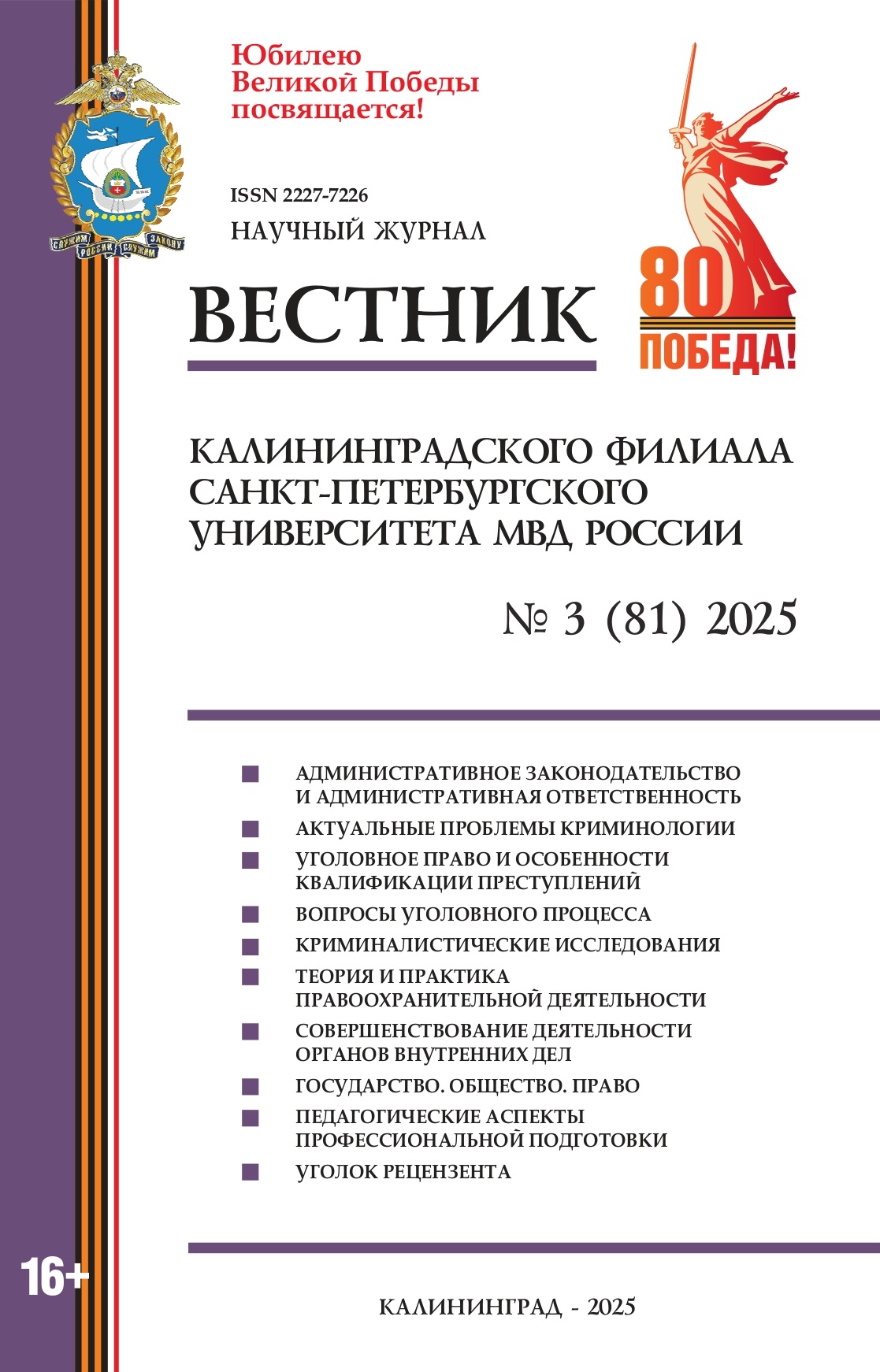from 01.01.2024 until now
Universitet Prokuratury RF (aspirant)
from 01.01.2024 until now
Omsk, Russian Federation
Introduction. In the course of the study conducted by the author, the features of criminal proceedings against persons who have fled abroad were analyzed. In particular, topical issues of the development of legislation in the sphere of regulation of criminal procedural rules concerning criminal proceedings against persons who have fled from investigation and trial abroad were considered. The theoretical and legal foundations, as well as practical aspects of the application of such rules in the practice of international legal interaction in the context of globalization were studied. Methods. The study used the methods of system analysis, expert assessment, analysis, synthesis, abstraction, generalization, analogy, induction, deduction. Results. Summarizing the results of the study, the author comes to the conclusion that in order to improve the development of criminal proceedings against persons who have fled from justice outside the Russian Federation, not only technical and organizational innovations are required, but also a conceptual rethinking of the balance of interests of the state and individual rights. Effective development of the institution considered in the article is possible only if regulatory clarity, a high level of procedural guarantees and international cooperation based on mutual recognition and respect for human rights principles are ensured. The author has established that a systemic adjustment of the regulatory framework for criminal proceedings against persons who have fled abroad is necessary. The need for expanding the procedural guarantees of the accused, developing international criminal-legal cooperation, and digital transformation of legal proceedings has been identified.
Criminal procedure law, international cooperation, judicial proceedings, legal norms, extradition, fugitives from investigation and trial abroad, persons hiding abroad, international interaction.







